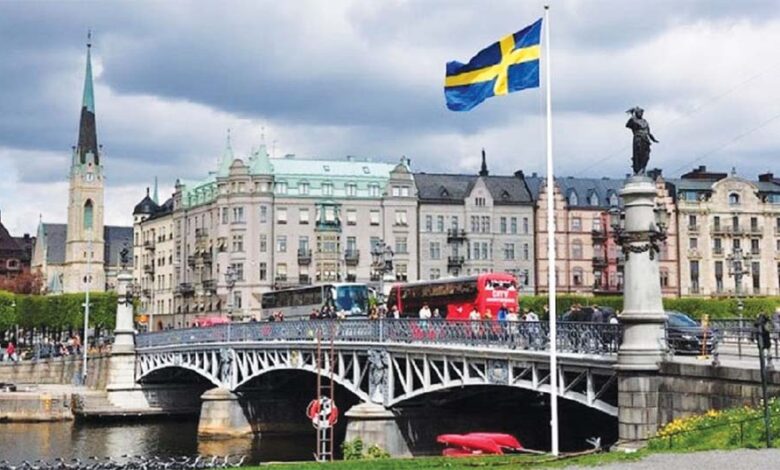SURVEY: ‘Sweden is decades behind on racism and diversity’

BY| TheLocal
A majority of the more than 500 readers who responded to The Local’s survey said they agreed that Sweden was a racist or xenophobic country, at least in part, with almost half saying that the election of a new anti-immigration government had made them less likely to stay here in the future.
We asked our readers if they felt welcome in Sweden, how they felt towards Sweden’s new right-wing Sweden Democrat-backed government, whether they thought the statement “Sweden is a racist and xenophobic country” was true or false, and if the new government had affected their future plans to stay in Sweden.
At the time of writing, our survey had received over 500 responses, more than we’ve ever had for one of our editorial surveys, although it’s important to note, that as respondents were self-selecting, this is not a scientific study.
Over three quarters of respondents (78.2 percent) were either ‘very’ or ‘slightly’ negative about Sweden’s new government, just over half (51 percent) felt less welcome in Sweden than before the new government took power, and well over half (57 percent) said that the statement “Sweden is a racist and xenophobic country” was either “completely” or “somewhat” true.
Additionally, just under half (47.9 percent) said that the election of the new government had made them less likely to stay in Sweden in the future.
‘Felt fine under Stefan Löfven’
It wasn’t just the new government who had made some feel less welcome. One 30-year-old American woman living in Sweden with her Syrian husband stated that she had “felt fine under Stefan Löfven”, but felt that Magdalena Andersson’s rhetoric towards the end of the election was “racist” and she and her husband had felt less welcome since then.
‘I don’t know if I will invest my money here’
One non-EU tech worker said that the outcome of the recent election “has not affected my intention to stay in Sweden, but is likely to make it legally and logistically less likely”.
A Brazilian buyer in an international company wrote that “before, I was planning to buy a house in two or three years. Now, I really don’t know if I will invest my money here.”
The Brazilian man, who wished to remain anonymous, added that he was “looking for stability for me and my family”.
“Considering my condition here (work permit), I feel that I don’t have this stability and also I cannot make long-term plans.”
‘Reality is not so squeaky clean’
On the question of whether Sweden is a racist society, many respondents said that the reality is more nuanced.
One of these included Stuart, a humanitarian volunteer in Gothenburg, who said that he believes Sweden “has always been [racist] under the surface, but I still think it’s not all Swedes”.
“It is not always hardcore racism,” he said. “Just that Swedes prefer to hang out with other Swedes.”
“It is a hard society to integrate into. They believe the image that Sweden is a tolerant society protecting human rights but the reality is not so squeaky clean,” he added.
Kashyap Haresamudram, an Indian doctoral researcher at Lund University, said that he feels welcome among his peers at the university, but that outside this “bubble”, he occasionally feels like he is more of an outsider.
“As a PhD student, I generally tend to meet academics, other highly educated individuals, and internationally oriented Swedes, and within this bubble I feel welcome and comfortable,” Haresamudram said.
“But outside this bubble, there are times when I feel like I do not fit in, when I’m very aware that I’m seen as an outsider. And that can be uncomfortable when all you want to do is blend in.”
‘Decades behind’
Others, including a 34-year-old South Asian reader, who wanted to remain anonymous, said that in her opinion Sweden is “decades behind on any conversations related to race and diversity”.
“Swedes do not acknowledge either of these things, which is very dangerous in an increasingly diverse society,” she said.
“Whether Swedes like it or not, the make-up of their country is changing and there are now a couple of generations of immigrants here who are contributing to making it a stronger economy and society,” she added.
“I am a highly-educated, highly-paid foreign worker and a person of colour who has lived all over the world — and I have never had the sorts of experiences that I have had in Sweden, such as being the only one to have my bags searched at grocery stores, being told by a bank to open an account ‘near where I live’ when I went to a branch in my upscale neighbourhood, etc.”
Another individual who contacted us via email, a 33-year-old doctor who described herself as a half-Indian, half-Bangladeshi, and from the UK, said that patients had called her ‘jävla invandrare‘ (‘bloody immigrant’) “countless times when they don’t get what they want”, and that the son of a patient said she “didn’t sound Swedish” and called her a “f*cking Arab” when she called him to discuss his mother’s treatment.
She also said that she has been “told that I’m the right type of immigrant because I’m more European”.
“I see a huge difference in behaviour from when people see my skin colour and assume I’m from a non-European country to when they find out I’m British,” she wrote.
Structural racism
A number of respondents cited discrimination on a structural level which led them to believe that Sweden was a racist society, such as struggling to find work or housing due to their appearance or name, or seeing friends or colleagues struggle to do so.
One respondent, who described himself as “a reader from western Sweden”, said that he had seen friends and acquaintances struggle to find work despite being highly qualified.
“I know a black person from Ghana who got a Masters degree in Financial Engineering in Sweden and has not been able to find a job for two years,” he said. “All of his classmates found a job. Now he works at Burger King.”
An engineer from a non-EU country who is in Sweden on a work permit described a “glass ceiling of career growth”, which, he added, led to “instability” for his long-term plans to live in Sweden.
‘Treated like criminals’
A common theme across many of the responses we received was the feeling that Sweden’s new policies have already started to drive away highly-educated foreign workers.
The 34-year-old South Asian woman quoted above said foreign workers like herself are “treated like criminals for just being foreign”.
“We live here legally, contribute to society and pay bucketloads in taxes. Sweden desperately needs foreign workers but the government here is enacting policies that will drive us away in droves. What a shame.”
‘It can be deeply traumatising’
Haresamudram, the Indian doctoral researcher quoted above, said added that while he has never experienced “overt racism and xenophobia”, “microaggressions are common”.
“Most times it is innocent and obvious that it stems from ignorance or lack of awareness, and while it can still be unpleasant, it is easy to shrug off.”
“But the rare few times that there is malicious intent, it can be a deeply traumatising experience. I’ve fortunately had very few of those, but I know others who haven’t been so fortunate. It really depends on where you fall on the socio-economic ladder I think.”
‘I felt so powerless. I felt I did not matter’
Another individual, a Japanese woman who contacted The Local via email, detailed the verbal and physical race-related abuse she claimed she received at the hands of a security guard in an Ica supermarket.
“I made a mistake at the self checkout and forgot to scan a pack of eggs,” she wrote. “The Ica security guard saw this, and physically attacked me unprovoked, leaving bruises and scars on my arms and hands.”
“He tried to take my phone away and when I begged to call my family he threatened me saying that he can make my life difficult.”
“He made a comment about my race and when he learned that I do not speak Swedish he yelled ‘When you live in Sweden you are obligated to speak Swedish.’”
She claimed that the security guard took her to a locked interrogation room and made a civil arrest, which she later learned was illegal. The management team at the Ica store refused to help, telling her to call the police if she wanted to complain.
“I am still traumatized by the experience,” she said.
“I felt so powerless as there was not much done by the authorities. I felt I did not matter.”
‘Mixed feelings’ for PhD students
One of the groups which may find it easier to stay in Sweden under the new government’s migration policy proposals are PhD students.
Haresamudram explained his “mixed feelings” as a PhD student who may benefit from these proposals in an anti-immigrant climate.
“On the one hand you have this privileged position of being the “good” immigrant as a PhD with some favourable policies, but still being surrounded by the general anti-immigrant sentiment.“
“It is a strange time to be a PhD student in Sweden. While the general rhetoric is evidently very anti-immigrant, there seems to be a small pro-PhD voice in the Liberals within the coalition who want to make it easier for Sweden-educated PhD’s to remain and find work.”
He described the uncertainty as “anxiety-inducing”, especially for those in his position who are halfway through their PhD studies.
“Nobody on the street is going to question what type of immigrant someone is before making a judgement, and the general rhetoric is harmful on a societal level and will undoubtedly have negative consequences for foreigners in terms of our ability to belong and identify with Sweden and Swedish culture, our ability to participate in Swedish society, and our general quality of life, irrespective of what privileges you may have because of education or economy.”
“But of course it is always easier for those that do have the privileges compared to those that don’t.”
‘I saw racism from a different perspective’
A number of responses were from immigrants who “look Swedish”, who spoke of the difference in how they had been treated compared with friends or family members of colour.
One of those was Alex. “We are a mixed race family, originally from Australia but we have lived in the UK and Hong Kong for many years,” she




